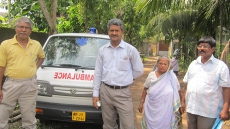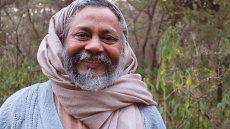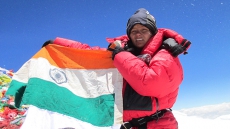Acid attacks have been in existence for several years in various parts of the world but have especially gained prominent attention in the past decade. A weekly publication in Glasgow, The Reformer’s Gazette, published an editorial in the 1830s highlighting one such attack and commented about the use of vitriol (sulfuric acid) saying, “The crime of throwing vitriol has, we grieve to say, become so common in this part of the country, as to become almost a stain on the national character.”
The premediated crime brutally scars victims physically and psychologically leaving some of them to resort to suicide so that they can escape excruciating multiple surgeries, financial load, and a diminished prospect of finding employment. All of this while they also desperately struggle to get their attacker behind bars in states lacking strict laws for such attacks.
Presently, the bulk of acid attacks comprise within South Asia’s India, Pakistan, Bangladesh and Cambodia. Although Bangladesh is leading the model of recovery from acid attacks with strict laws and harsh punishments in place – reports suggest a steady decline of 20 percent to 30 percent – other nations within the category are struggling to cope with their escalating stats of acid violence.

In fact, it was only in 2013, when the Indian judicial system decided to isolate acid attack crimes from other offences under Section 326 of the Indian Penal Code (voluntarily causing grievous hurt by dangerous weapons or other means) and created Section 326A and 326B which specifically deal with acid violence. And yet, acid attacks in India continue to increase.
This continuous rise is what germinated the establishment of Stop Acid Attacks (SAA) and similar organizations that extend various services – financial support for surgeries, legal aid, shelter, employment, and a space for survivors and campaigners to unite voices against the horrors of acid attacks.
SAA was initiated as a campaign by Laxmi, an acid attack survivor, and her partner, Alok Dixit. It has now fermented into a nationwide anthem with regular protests and campaigns in India. Personalities from various fields, national and international, have come forward to speak for legal rights of acid attack victims and agitated for their acceptance in a rigid society.
In 2013, SAA’s activism to restrict trade of acid resulted in the Supreme Court of India banning over-the-counter sale of acid. Further reforms to the law mean convicts can draw up to 10 years in prison for acid violence. The reform has helped lift the veil on this crime that had for years forced those affected by it to live in the shadows. Moreover, victims are more confidentially coming forward to register cases and taking refuge of law.
With the aim of restoring lives of acid attack survivors, SAA and similar organizations across India have developed efficient means of rehabilitation. Sheroes Café (She+heroes) is one of them. Ritu, Geeta, Neeta and other survivors manage this café based in Agra, India.

The location transforms into an activism space, community radio hub, and an exhibition ground showcasing textile creativities of survivors. Sheroes website describes its role in acid attacks saying, “As the idea of this space has evolved from a campaign for acid attack survivors, the ideas of beauty and importance of appearance in society remain the epicentre of discussions and programmes run from here.”
Recently, SAA inaugurated Sheroes Café’s second branch in Lucknow, India, while accentuating the need to identify more of such victims in the area and rehabilitating them. Lucknow, the capital city of Uttar Pradesh, reportedly contributes to a majority of these acid attacks. In coherence with SAA’s mission of rehabilitation, a bus will travel to various districts within the city to spread awareness and identify victims that were attacked prior to 2013 when the law was pursued in this direction.
Already, acid attack survivors have carved success stories of themselves. It is definitely motivating to see Laxmi getting honoured with International Women of Courage Award 2014 and as the face of a fashion brand, Viva N Diva; Kavita Bisht serves as the brand ambassador of the Uttarakhand Women and Child Development Department; and Rupa as a fashion designer sharing her boutique space with Sheroes Café, Agra.
The long run agitation by survivors and activists has motivated survivors, men and women, of this appalling crime to confidentially come out in the open and raise their voice against it. In fact, this has been a forceful factor in the Supreme Court of India allocating an exclusive section to the crime and ordering states to extend financial support to victims for their surgeries. This does not mean the fight for their rights is over, because what is also a fact is that acid attack figures have not come down despite of law emplacements.



